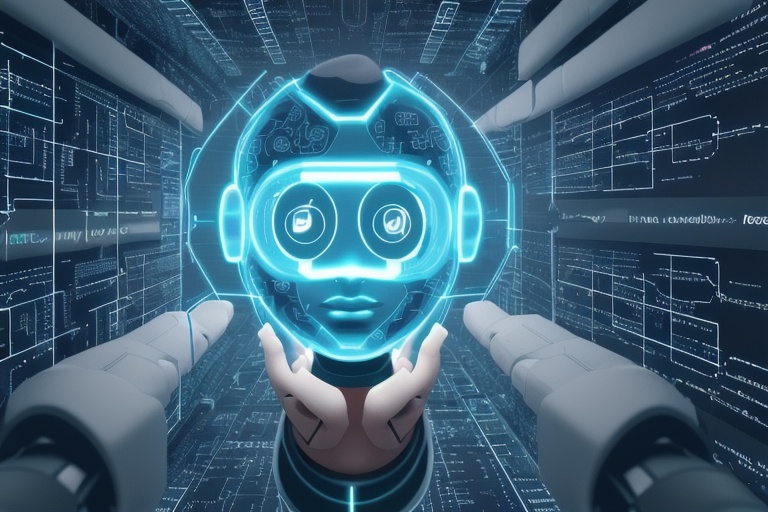Artificial Intelligence (AI) has long captivated the imagination of scientists, futurists, and the general public alike. Its dramatic ebbs and flows - from its golden era to seasons of so-called 'AI winters' - mark a journey of relentless pursuit in creating machines that exemplify human intelligence. This pursuit has indeed born fruit, bringing forth pioneering systems that have transformed industries and daily life. Let’s embark on a journey through the evolution of AI and examine its growing influence across various fields.
Artificial Intelligence (AI) has long captivated the imagination of scientists, futurists, and the general public alike. Its dramatic ebbs and flows - from its golden era to seasons of so-called 'AI winters' - mark a journey of relentless pursuit in creating machines that exemplify human intelligence. This pursuit has indeed born fruit, bringing forth pioneering systems that have transformed industries and daily life. Let’s embark on a journey through the evolution of AI and examine its growing influence across various fields.
The Renaissance of AI
The late 20th century witnessed a revival in AI research, with critical contributions from renowned scholars like Geoffrey Hinton, David Rumelhart, and Ronald Williams, who introduced groundbreaking concepts such as neural networks and the backpropagation algorithm during the 1980s. This period laid the groundwork for subsequent breakthroughs that would define the trajectory of AI advancement.
As the 1990s dawned, the advent of the World Wide Web catalyzed an explosion of data. This data deluge fueled the development of sophisticated, data-driven machine learning algorithms, marking the onset of a new era where AI began to shine in practical and impactful ways. The following years saw AI making significant strides, especially in areas such as speech recognition, image recognition, and natural language processing.
AI in the Modern Age
Fast forward to the present, and AI is experiencing an unprecedented surge in interest and investment. This resurgence is propelled by factors such as deep learning, the exponential growth of data (affectionately termed 'big data'), and remarkable advances in computing power. Tech giants like Google, Microsoft, Facebook, and Amazon are at the vanguard of AI research, continually pushing the envelope with their relentless pursuit of innovation.
Artificial intelligence has seamlessly integrated into myriad industries. In healthcare, AI aids in diagnosing diseases and developing personalized treatment plans. In finance, it powers fraud detection systems and algorithmic trading. AI's footprint extends to transportation, optimizing logistics, and giving rise to autonomous vehicles. The entertainment industry has also reaped benefits, from personalized content recommendations to computer-generated visual effects.
As AI technologies continue to mature, they promise to revolutionize how we live and work, presenting potential opportunities across virtually every sector imaginable.
Delving Deeper into AI
Understanding the intricate fabric of AI's evolution allows us to appreciate its capabilities and potential impact on the future more profoundly. In subsequent explorations, we will dissect the myriad applications of AI, its technological advancements, the advantages it brings to the table, and the challenges we must conquer.
We invite you to join us as we explore the fascinating landscape of artificial intelligence – an undertaking that promises to unravel the capabilities of the digital brain and its implications for the tapestry of human society.
AI’s Proliferation and Future Potential
The chapters of AI's development are filled with milestones that signal both its breadth and depth. AI systems such as MYCIN and DENDRAL illuminated its prowess in niche areas and showcased how it could surpass human expertise. The chronicles of AI's progress continued through the turn of the century with major leaps in speech recognition, natural language understanding, and computer vision. These advancements culminated in the creation of AI like IBM's Watson, which displayed an almost human-like ability to process and analyze vast amounts of information, and Google's forays into deep learning, which allowed machines to learn from data in fundamentally novel ways.
In today's world, AI is not just a novel concept but a ubiquitous presence. Virtual assistants respond to our commands, recommendation engines curate our digital experiences, autonomous vehicles navigate our streets, and sophisticated algorithms aid in diagnosing medical conditions. Our encounter with AI is frequent and growing ever more intimate.
The horizon for AI stretches far beyond our current purview, promising enhancements unbridled by the limits of today's technologies. Quantum computing, with its potential to perform calculations at unprecedented speeds, stands to supercharge AI's problem-solving capabilities. The tier of 'explainable AI' promises models that are not just accurate but also interpretable, allowing us to understand the 'why' behind AI decisions. Additionally, the ethical dimension of AI beckons our attention, urging us to consider how we can harness this power for the greater good while mitigating the risks associated with its use.
In the forthcoming discussions, we will delve into these exciting prospects. We will explore the diverse applications that AI might conquer next, face the ethical dilemmas that come with such power, and help shape the guidelines for its responsible adoption. Our journey into the domain of AI is one of continuous learning and anticipation, watching the emergence of a force that stands to redefine the world as we know it. Stay tuned as we navigate the vast and uncharted waters of AI's transformative potential.
Information for this article was gathered from the following source.




